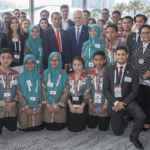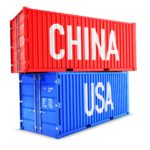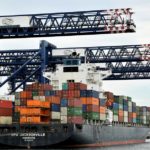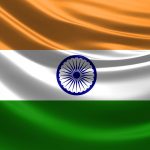Focus on ASEAN – The Philippines and Singapore

The Philippines
The Philippines is one of Asia’s fastest-growing economies and has a rapidly expanding middle class. The macro-economic fundamentals of the Philippine economy also remain sound, based on strong domestic consumption, ambitious infrastructure plans and an educated bilingual workforce. Major Philippine conglomerates play an important role in the economy, supporting economic growth and investment across multiple sectors of the economy, but there are opportunities for smaller Australian firms to address niche markets.
Domestic consumption contributes almost 75 per cent of GDP and is expanding at over 6 per cent per annum. The rise in disposable incomes across the country is underpinned by Overseas Filipino Worker remittances, which make up around 10 per cent of the Philippines’ GDP. In 2016, over 2.1 million Filipinos worked overseas and most sent money home to loved ones or families. Filipinos are also highly digitally connected, with around 87 per cent of the population owning a mobile device.
The Philippine Government wants to carry out reforms to make the nation more globally competitive. These reforms aim to improve infrastructure and the ease of doing business, revise foreign ownership restrictions, and invest in the development of human capital.
The Government has therefore launched an unprecedented spending program on transport, railways, roads, airports, ports, energy and utilities development to ease infrastructure bottlenecks. This ‘Build Build Build’ program will account for 5.4 per cent of GDP ($193 billion) from 2016 to 2022.
However despite significant market opportunities, the Philippines can present challenges, including constitutional limits on foreign investment in various industries and public utilities, business registration and establishment.
Over 280 Australian companies are in the Philippines in a range of sectors including infrastructure, transport, financial services, mining, energy and business process outsourcing.
Premium agricultural, food commodities and services are a growth area, although the Philippines remains a net food importer. Rising incomes are fuelling growth in the retail, food service and processing industry as well as demand for Australian products such as grains and flour, temperate fruits and vegetables, beef and lamb, dairy, wine and healthy, nutritionally-boosted food and beverages.
The domestic agricultural sector is also seeking technologies and services to increase productivity and efficiency levels, including livestock genetics, feeds, production and supply chain management and irrigation solutions. Australian agtech, logistics and supply chain solutions are therefore areas of commercial potential.
Education is another sector in demand. Employment and productivity are top of the agenda for the Philippine government and private sector and recent education reforms seek to align the Philippines with the rest of the region and ‘future-proof’ jobs and address industry skills gaps.
There are therefore solid opportunities in the higher and tertiary education sector, including vocational education and training (VET) and skills development. The Philippines is focused on developing globally competitive skills, particularly in healthcare, aged care, hospitality, business processing and retail and so Australian education and VET providers have opportunities in VET and skills programs for delivery in Australia or in the Philippines.
Consultancy, engineering and technical advisory services are also in demand. The Philippines is the headquarters of the Asian Development Bank and is an international aid recipient, despite its strong economic growth. Service providers have opportunities for involvement in multilateral aid projects, not only in the Philippines but also in Central and South Asia. Infrastructure, water, transport, energy, disaster management, health and education are areas of potential opportunity.
Resources, energy and related services are another important sector. The Philippines is the fifth most mineralised country in the world and Australia is considered a leader in achieving sustainable mining. There are opportunities in supply and supporting infrastructure and services for liquefied natural gas and renewable energy, particularly solar- related generation.
Despite challenging commodity prices and regulatory constraints, opportunities for Australian mining equipment, technology and services companies include specialist consultancy, engineering services and mining equipment supply.
As with other Asian nations, with a growing middle class, healthcare is another fast growing market. Opportunities in this sector include education and training, complementary health products, telemedicine and facilities design and management.
Singapore
Singapore is a stable, sophisticated and wealthy city-state famous for its ease and transparency of doing business and well deserved status as a reliable and efficient logistics hub and finance centre. Singapore’s outward-looking, export-oriented approach to trade has established the country as a strategic global focal point, with strong connections to ASEAN’s growing middle class population. It is therefore little wonder that over 3,500 multinational corporations are based in Singapore.
Singapore has a well-diversified economy with key sectors including manufacturing and business and financial services. Recent economic reforms have furthered increased Singapore’s appeal to overseas operations and it is now one of the most important financial, trade and wealth management hubs in the world, let alone the region, with global reach in terms of currency and commodity trading, transhipment and oil and gas refining.
Opportunities for Australian companies abound in Singapore. It is Australia’s largest trade and investment partner in ASEAN, and an important focus for Australia’s commercial engagement in the region. A Comprehensive Strategic Partnership now elevates Australia’s relationship with Singapore to further enhance people, business and government links.
Singapore is a remarkably innovative as well as hard working nation, ranking sixth in the World Innovation Index. In 2017, the Government announced a five-year economic transformation supported by increased investment in public infrastructure and technology-driven innovation to maintain its momentum in global terms.
Singapore’s ‘Smart Nation’ program and focus on innovation and the commercialisation of technologies provide opportunities for collaboration and commercial partnerships with Australian firms across sectors including cyber security and big data.
Given its position as a hub for multinational corporations and vital role in many global value and production chains, there are opportunities for Australian expertise in the aerospace and defence sectors as well as advanced manufacturing, materials and services.
Singapore is also the world’s third largest oil trading hub and home to almost all of the global energy majors and engineering procurement and construction management companies. Opportunities therefore exist for Australian companies in global supply chains, especially in solutions, processes and new technology sectors to enhance operational efficiencies.
Infrastructure and construction will also remain strong and Australian pension funds and asset managers will benefit from city-state’s infrastructure project pipeline. There are now significant opportunities to invest and partner with construction and engineering companies preparing for the US$1 trillion-plus per annum of infrastructure to be built across the region.
Education in Singapore focusses on the development of workforce skills, innovation and technology. The government places a high priority on developing an industry-ready workforce through training in specialised skills and so targeted, skills-based training and research on niche ‘borderless education’ and institutional research are areas of potential collaboration.
Healthcare services and technologies will grow in demand, as they will across the region. One in four Singapore citizens will be over 65 years by 2030, for example, and this will create demand for healthcare services, medtech and biotech services. Australia’s extensive capabilities across these sectors can support Singapore, especially in the field of new medical technologies.
Singapore’s small but sophisticated consumer class creates significant opportunities for Australian exporters of agrifood, premium food, wine and consumer goods. Suppliers will also benefit from improved logistics across the region, enabling them to provide quality Australian food into the expanding ASEAN market via Singapore’s excellent transport links with the rest of the region.
For more information, see the ASEAN Now report from Australia Unlimited from which this data was derived.








